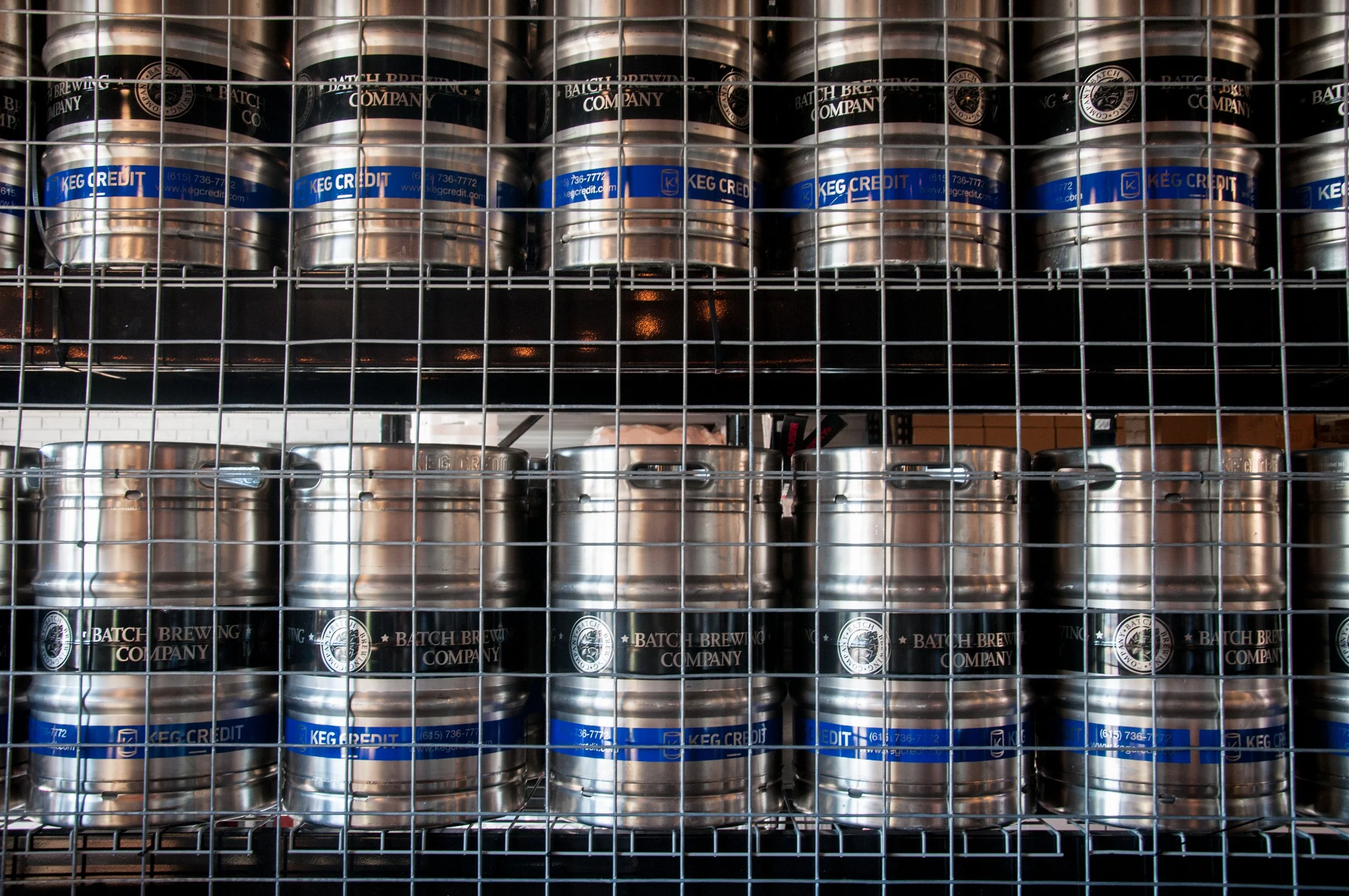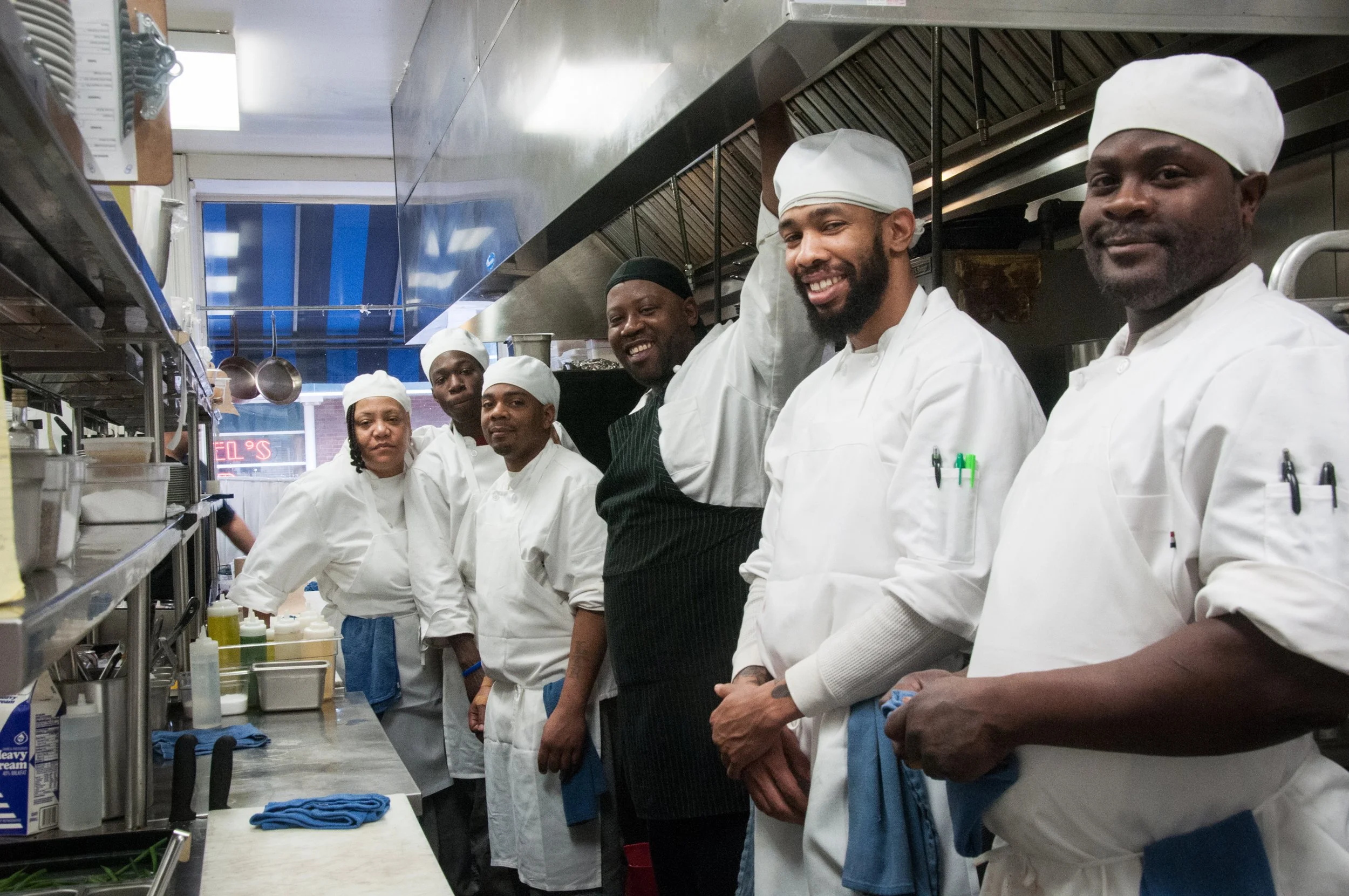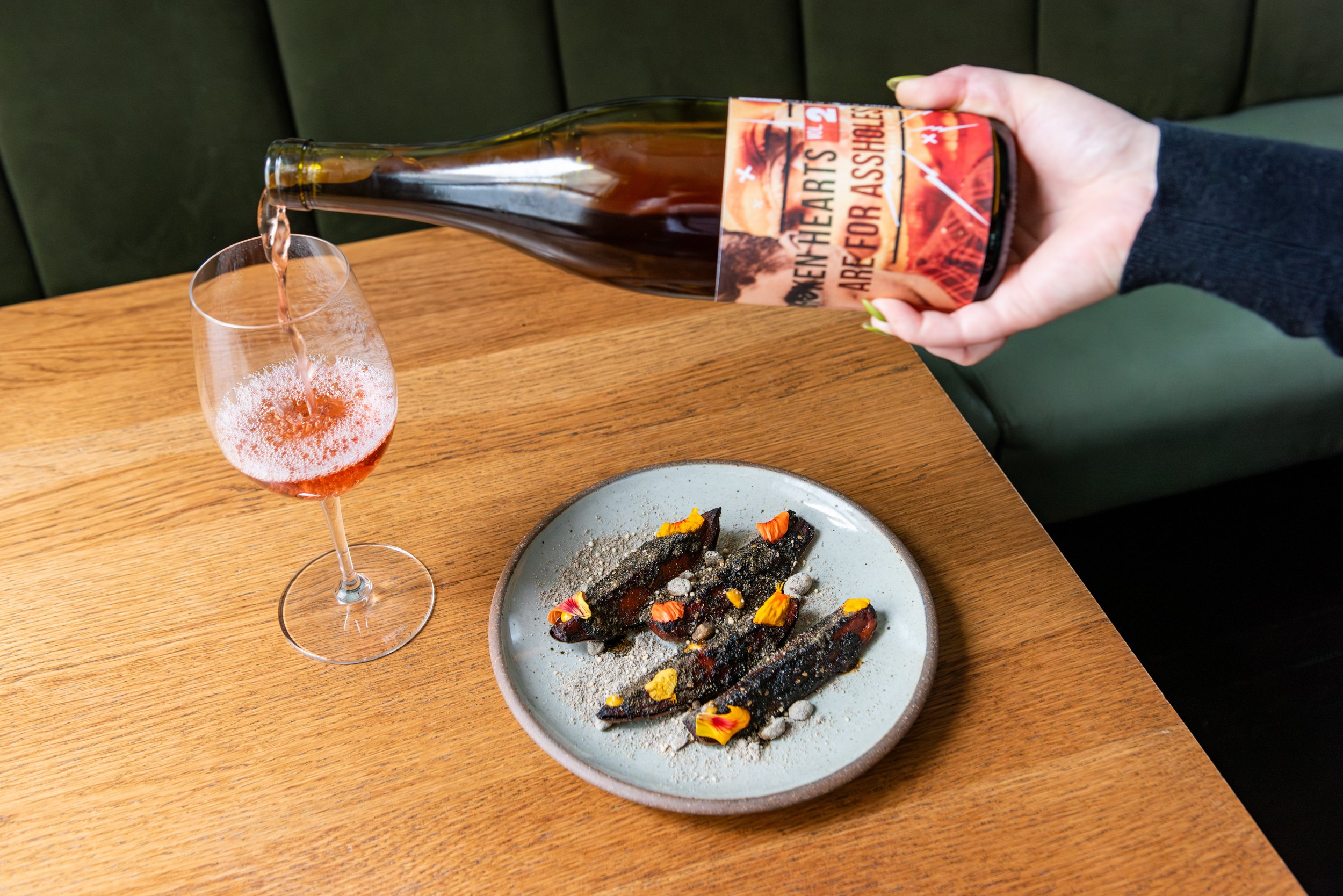Action. Community. Hospitality.
How to implement change—big and small—through your restaurant.
Purposeful, hands-on work. Historically, it has meant a lot to Rust Belt residents. It’s also the reason so many people join the ranks of hospitality professionals. As the restaurant industry continues to gain social currency and deepen its community ties, a full restaurant and superior craft are only part of the picture of success. Altruism and activism have become a serious force from within the food and beverage business, and the greatest minds in the industry are turning their attention to the neediest among us.
In Houston, Bartender-turned-Restaurateur Bobby Heugel launched nonprofit OKRA Charity Saloon and has given away more than $820,000 to date. Recent New York import Claus Meyer (of noma fame) has established cooking schools in Danish prisons, impoverished parts of Bolivia, and, now, in the under-served Brownsville neighborhood in Brooklyn. New Orleans-based Chefs John Besh and Aarón Sánchez are partnering to mentor and send aspiring chefs from the Latin community to culinary school in New York.
These are the stories that are unfolding in Pennsylvania, Ohio, and Michigan, in which industry leaders are creating meaningful work and paying it forward. From practical, simple programs that spread goodwill to breathing life back into an old steel mill town, professionals in the Rust Belt are proving that hospitality can be a transformative force for change in America.
Pie It Forward WITH SISTER PIE
Rising Star Pastry Chef and Michigander Lisa Ludwinski nurtured her creative impulses and developed her confident, fearless cooking style at Milk Bar in New York City. She came home in 2013 to found her own bakery in Detroit, and Sister Pie opened in the West Village neighborhood two years later. “I’m not like a chef at a restaurant. I’m a businesswoman running a restaurant,” says Ludwinski. “Over time, you have to make an impact on the community, and that’s especially true in Detroit. People think, ‘Look at all these white people who have come and saved Detroit!’ NO! I have to honor the past and be inclusive. Not all businesses do that. It’s tricky.”
At Sister Pie, where the employees come from the neighborhood and all around Detroit, there are seasonal blue-barb pies, sour cherry pies, and salted maple pies. But only one pie is always in season: free pie. Ludwinski created the “Sister Pie-It Forward” program through which customers can “get a slice and give a slice.” When checking out, guests can add an extra slice of pie to their order, and, in return, they get a “fork slip” to clip onto a clothesline on the wall. After that, anyone who’s having a hard time or a bad day, or can’t afford a slice is welcome to unclip a fork slip and redeem it for delicious pie. It’s an honor system that’s made all the more human with the pie-giver’s signature on the slip.
Ludwinski doesn’t keep official numbers, but in 18 months, about 300 slices have been pied forward. “The idea is to promote selfless generosity, whether it’s for someone in need, someone who hasn’t tried Sister Pie before, or someone who left their wallet at home,” she says. “We want to maintain a commitment to standards and to a code of ethics. I know that sometimes I won’t make the best pastry ever, but the quality of the experience for the customer and employee is ultra good. We want to grow while maintaining a presence here.” Welcome to the pie-borhood.
The Facts
Business: Sister Pie
City: Detroit
Neighborhood: West Village
Industry Leader: Lisa Ludwinski
Initiative: Sister Pie-It Forward
Pie Paid Forward: 300 slices from 40 pies in 18 months
Dollar Dquivalent: $4.24 per slice x 300 = $1,200
Goodwill Created: Infinite
Replicability: 100%
Ease of implementation: On a scale of 1 to 10 (with 10 being the easiest), 11
Necessary Equipment: Paper, clothesline, a product
Join In: sisterpie.com/shop/sister-pie-it-forward
Get Inspired: sisterpie.com
The Feel-Good Tap
When water, malt, hops, and yeast are combined by a trained hand, it makes people feel good. Stephen Roginson, founder and head brewer of Batch Brewing Company, Detroit’s first nano-brewery, has created a way to exponentially increase that ebullience. After moving to Detroit from the ’burbs, launching a crowdfunding campaign, winning the 2013 Hatch Detroit business incubator contest, and completing a bootstrap build-out, Roginson installed the Feelgood Tap on his brewery’s bar in early 2015. The beer that flows from the taps changes often, but the sentiment and purpose remain the same: a pint pulled from the Feelgood Tap costs $1 to $2 more than the regular price, and at the end of the month all those extra dollars are donated to charity.
The first recipient of this brewhouse benevolence was the National Multiple Sclerosis Society, Michigan Chapter, an organization close to Roginson’s home and heart because his mother has lived with MS since the 80s. What started as an initiative and personal mission has turned into a 501(c)3 nonprofit with at least nine other bars and breweries installing Feelgood Taps.
In 2015, the Feelgood Tap nonprofit generated $27,000 that was dispersed to Michigan state and local charities. Roginson envisions a 100-bar network of Feelgood Taps pulling in upwards of $50,000 a month to support organizations like the Cabrini Clinic (America’s oldest free clinic) and the Detroit Hispanic Development Corporation.
Batch recently collaborated with Falling Down Beer Co. in Warren, Michigan. Both breweries sold the “Blood In, Orange Out” Hefeweizen with the tap handle that reads “Feelgood.” “Michigan is an incredibly mature beer market,” says Roginson. “We have the responsibility to make the best beer we can, innovating within and around tradition.”
Having brewed dozens of beers at Batch, and overseen growth from 300 barrels in 2015 to a projected 1,000 for 2016 (and with expectations to double that in 2017), Roginson has come a long way from brewing in his garage. He may own a flagship-less, new wave brewery, but he also unintentionally created a flagship: Feelgood brew that’s “creating change one glass at a time,” as Roginson says.
The Facts
Business: Batch Brewing Company
City: Detroit
Neighborhood: Corktown
Industry Leader: Joe Roginson
501(c)3: Feelgood Tap
Price of Pint at Batch: $5 to $9
Feelgood Tap Upcharge: $2 at Batch, $1 at participating bars
Money Raised 2016: $27,000 (at $1 to $2 per beer, that’s A LOT of pints!)
First Beneficiary: MS Society
Join In: feelgoodtap.org
Get Inspired: batchbrewingcompany.com
Russell Street Deli
It’s hard to say which facet of Ben Hall’s work is most important. Is it his contributions to the Child Nutrition Reauthorization Act? Is it the soup he provides to Detroit public schools? Is it his work in food waste reduction? He’s proud that since buying Russel Street Deli 10 years ago, business has tripled but they still have the same single dumpster out back. Or is it his less wonky, more personal, day-to-day work at Russet Street Deli that matters most? Whether Hall is acting as a member of a task force or interacting with an employee on the line, his motivation is rooted in one ideal: “I want to create equity for staff, so they don’t have the same problems I had,” says Hall.
Years ago when Hall entered the workforce, his outlook was bleak. He had no high school diploma, no skilled training, and his meager prospects offered wages almost impossible to survive on. He got a job washing dishes at the Deli and got down to work.
Hall had a realization. “Food is really a path to self-actualization, because a skillset in food allows you to give like no other,” he says. So, when he hires a new employee, he’s offering more than a respectable gig with a decent wage. Hall is offering a path forward. “Most of my employees don’t know another person with a job,” he says. There’s almost universal unemployment among specific communities in Detroit, especially in black communities. Nearly 83 percent of the city’s population is black, yet you would never know that from walking into its top kitchens and meeting its cooks. Hall’s kitchen is one of the few that actually reflects the racial make-up of Detroit.
The average yearly income in Detroit for a family of four is $26,200, according to Hall. The average minimum hourly wage at Russel Street Deli is $15.91, which translates to an annual salary that’s $7,000 above that average. In this way, Hall is making change on a micro as well as macro level.
Through his urban farms and other local partnerships, Hall is taking back the means of production. Combine that with his hiring practices and higher wages, and Hall is remodeling the unsatisfactory restaurant model that we’re accustomed to. “If you are desperately moving toward failure, do I want to fail on someone else’s template?” Hall asks. “The restaurant model is broken.” Fixing it may be Hall’s most important work.
The Facts
Business: Russel Street Deli
City: Detroit
Neighborhood: Eastern Market
Industry Leader: Ben Hall
Employee Average Hourly Wage: $15.91
Percent of African Americans Living in Detroit: 82.7
Percent Chance that Hall’s Staff Looks Like the City: 100
Money Donated by Customers to Gleaners Foodbank: More than $85,000 (225,000 meals)
Gallons of Soup Produced Weekly: 5,000
Number of Public School Children with Access to Healthy, Affordable Russel Street Soup: 55,000
Cost of Soup on Hall’s Menu: $2
Edwins
Edwins is a traditional French fine-dining restaurant in Cleveland with a nontraditional staff. Every employee is a formerly incarcerated individual. From the front-of-the-house to the back, they’re carrying the white tablecloth torch for their city.
“Every human being, regardless of their past, has the right to a fair and equal future,” says Edwins founder and CEO Brandon Chrostowski. As a teen, Chrostowski spent time in jail and avoided prison by receiving probation on the contingency that he find a job. Chrostowski became a busboy, starting down a career path that would lead him to the Culinary Institute of America, and onward to work at Charlie Trotters, Le Cirque, Picholine, and Chanterelle, where he was sommelier. In 2008, he arrived in Cleveland as general manager of L’Albatros, where his vision to provide people with a second chance—just as he had received—began to take shape.
After much planning and fundraising (to date, Chrostowski has raised more than $6 million for the cause), Edwins opened in 2013, dedicated to teaching formerly incarcerated adults a skilled trade in hospitality and preparing them for a successful transition to the business world at large. In 2016, Edwins expanded to include three nearby buildings to cultivate a campus atmosphere and house students in a place where they can live affordably, work, and learn with the support they need.
Collaborating with other local nonprofits and community leaders, as well as with the judicial system, Chrostowski has woven together a world in which second chances are a moral imperative, a restaurant is a launching pad, and Edwins is a model for good civics and good hospitality on a grand scale.
The Facts
Business: Edwins Leadership & Restaurant Institute
City: Cleveland
Neighborhood: Shaker Square
Industry Leader: Brandon Chrostowski
Year Founded: 2013
Restaurants Gross Revenue Since Opening: $3,000,000
Number of Graduates: 165
Rate of Recidivism among Graduates: 0
Number of Perspective Students Turned Away: 0
Percent of Grads Who are Placed in Jobs: 90+
Number of Ohio prisons for which EDWINS has Developed Curricula: 30
Number of Restaurants Actively Seeking to Employ EDWINS grads: 40, including Cleveland’s Greenhouse Tavern and restaurants across the Atlantic in Normandy, France
Number of Prisoners Released Annually in Ohio: 20,000
Percent of all the Released Who are Rearrested within 5 years: 76.6
Next Up: Edwins Butcher Shop, to train students on butchery skills and provide the Buckeye neighborhood with quality meat at a fair price
Join In, Get Inspired, or Just Eat: edwinsrestaurant.o
Superior Motors
“When I was first introduced to Braddock, I immediately felt a very deep connection to the town and imagined what the downtown must have looked like in its prime,” says Kevin Sousa of the steel mill town Andrew Carnegie put on the map in 1872. “The place just struck a chord that continues to resonate because of where I grew up.” Sousa was raised in McKees Rocks, just outside Pittsburgh and not too far upriver from his current home in Braddock.
Having opened three Pittsburgh eateries within a two-year span—Salt of the Earth, Station Street Hot Dogs, and Union Pig and Chicken—Sousa was well on his way to fulfilling the dream of becoming a noted chef and restaurateur.
Fortified by the nostalgia and possibility of Braddock, Sousa made some life-changing decisions in pursuit of his new vision. He divested himself of his businesses (closing Salt and Station, and selling Union to employees), moved his family to Braddock, started a Kickstarter campaign that would get the project going (raising $310,000), and signed a long-term, no-cost lease for the Superior Motors building (Braddock’s mayor backs Sousa’s vision for his town 100 percent).
When up and running, Superior Motors will be much more than a restaurant, but “part of an established community-based ‘ecosystem’ that combines food, farming, art, history, industry, training, and lodging,” says Sousa. “It will also provide professional culinary training and opportunities at no cost to locals who will also receive a resident’s discount at Superior Motors. A big part of our mission is paying this forward for the young people in the community.”
There was a time not too long ago when Pittsburgh—surrounded by thriving suburbs and bustling towns—was the wealthiest city per capita in America. Sousa’s ambitious, holistic, thoughtful project will not rewrite history, but it will provide a vital path forward for a lot of people short on opportunity and long on hope. While you may have saved some potato scraps from the bin today to make a delicate brodo, Sousa is doing his damndest to save an entire town.
The Facts
City: Braddock (9 miles southeast of Pittsburgh, north of the Monongahela River)
Industry Leader: Kevin Sousa
Number of Rust Belt Jobs Lost During the Decline of the Steel Industry: 250,000+
Number of Functioning Restaurants in Braddock’s Borders: 0
Distance to Closest Farm: 2 blocks
Farm Acreage: 2
Size of Rooftop Greenhouse: 1,000 square feet
Foot print of Superior Motors: 3,000 square feet
Cost of Long-term Lease for Superior Motors negotiated by Sousa: $0
Total Funds Raised During Kickstarter Campaign: $310,000 (exceeding goal by $50k)
Rank among the Most Funded Restaurant Projects on Kickstarter: 1
Cost of Sousa Family Home in Braddock: $600 (no zeroes missing), plus renovations











